Public health nursing is a crucial aspect of healthcare that focuses on promoting and protecting the health of communities and populations. The “Public Health Nursing Practice 4th Edition-Test Bank” provides valuable insights into the roles, responsibilities, and ethical considerations faced by community/public health nurses. Let’s delve into some key points discussed in the test bank:
1. **Defining Community/Public Health Nurses**: These nurses are defined as professionals who apply concepts and knowledge from both nursing and public health fields. They work outside traditional healthcare institutions, synthesizing their expertise to provide holistic care to individuals and communities.
2. **Distinguishing Community Health Nursing and Public Health Nursing**: While some try to differentiate between these terms, the test bank highlights that community health nurses provide care in various community settings, irrespective of their educational backgrounds, while public health nurses specifically focus on public health issues with specific educational preparation.
3. **Unique Functions of Community/Public Health Nurses**: One of the unique functions of these nurses is to focus on the client as a member of the community. They care for the sick and dying, commit to helping clients, and provide holistic care, but their primary focus remains on the community environment.
4. **Balancing Individual Privacy and Community Needs**: Community/public health nurses need to strike a delicate balance between individual privacy and autonomy and the community’s needs for safety and security. This involves seeking a balance that respects both individual rights and collective well-being.
5. **Cultural Congruence in Care**: To ensure that care is acceptable to recipients, it must be culturally congruent. This means that nursing interventions should align with the cultural expectations and norms of the recipients, fostering acceptance and effectiveness.
6. **Ethical Considerations**: When faced with ethical dilemmas such as limited resources and unlimited needs, nurses are encouraged to prioritize basic services that benefit the entire community. The ethical principle of achieving the greatest good for the greatest number guides decision-making in such situations.
7. **Documenting Competent Care**: The “Public Health Nursing: Scope and Standards of Practice” document is a valuable resource that guides nurses in delivering competent and appropriate care in the community. It outlines standards and practices that promote the health of populations.
Community/public health nursing plays a vital role in advancing public health initiatives, addressing community needs, and promoting health equity. By understanding the unique functions and ethical considerations outlined in the test bank, nurses can better navigate the complexities of community/public health practice.
### FAQ
**Q: What is the role of community/public health nurses?**
A: Community/public health nurses focus on promoting and protecting the health of populations, providing care in various community settings, and addressing public health issues.
**Q: How do community/public health nurses balance individual privacy and community needs?**
A: They seek a delicate balance that respects both individual autonomy and the community’s needs for safety and security.
**Q: What ethical considerations do community/public health nurses face in their practice?**
A: Ethical dilemmas such as limited resources and unlimited needs require nurses to prioritize services that benefit the entire community and strive for the greatest good for the greatest number.
### Conclusion
The “Public Health Nursing Practice 4th Edition-Test Bank” offers valuable insights into the multifaceted roles and responsibilities of community/public health nurses. By embracing the principles of cultural congruence, ethical decision-making, and competent care delivery outlined in the test bank, nurses can enhance their practice and contribute to the well-being of individuals and communities. This resource serves as a guide for aspiring and practicing nurses in the dynamic field of public health nursing.When it comes to providing nursing care, different types of nurses play crucial roles in various settings. In the healthcare field, nurses are not only responsible for direct care to individual clients but also for promoting health and well-being through community and public health initiatives. Let’s delve into some scenarios highlighting the roles and actions of nurses in different contexts.
In the scenario presented, a community/public health nurse is distinguished from an acute care nurse in their approach to providing care to a recently discharged client in their home. While both nurses offer excellent care to the individual, the community/public health nurse goes a step further by assessing the health and needs of all family members. This holistic approach ensures that the nurse identifies others in the family who might require intervention or referral, emphasizing a family-focused model of care.
When a community/public health nurse encounters a situation where they cannot meet a client’s need, the most appropriate action is to refer the client to a person or agency that can provide the necessary assistance. This demonstrates the importance of collaboration and proper resource utilization in delivering comprehensive care to individuals and families in the community.
In cases where another agency is needed to help a family meet their health needs, the nurse’s most appropriate action is to provide the family with information to initiate contact with the other agency. By empowering the family to take charge of their care and follow up on referrals, the nurse fosters a sense of independence and accountability within the client.
Anticipatory guidance plays a significant role in educating patients about their health before they actually need to utilize that information. For example, providing a pregnant teenager with information about the normal process of labor and delivery before she goes into labor falls under anticipatory guidance, helping the individual prepare for upcoming healthcare needs.
FAQs:
Q: What is the role of a community/public health nurse compared to an acute care nurse?
A: While both nurses provide direct care to individuals, a community/public health nurse takes a holistic approach by assessing the health and needs of all family members and focusing on promoting health within the community.
Q: How should a nurse respond when unable to meet a client’s needs?
A: The appropriate response is to refer the client to a person or agency that can provide the necessary assistance, ensuring comprehensive care for the individual.
Q: How can nurses empower families in accessing additional support for their health needs?
A: Nurses can provide families with information to initiate contact with other agencies, allowing them to take responsibility for their care and follow up on referrals independently.
In conclusion, nurses play a vital role in delivering quality healthcare to individuals and communities by providing direct care, promoting health initiatives, and empowering clients to take charge of their well-being. Collaboration, education, and advocacy are key components of nursing practice in various settings, ensuring that clients receive holistic and comprehensive care for their health needs.


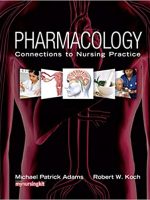
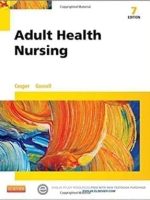
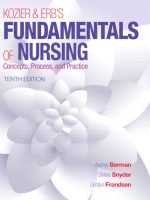
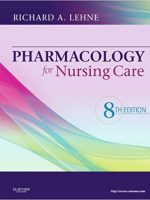
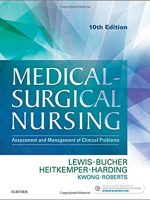
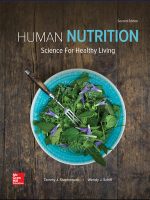
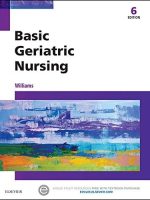
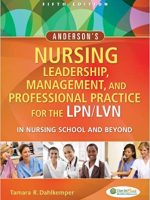
Be the first to review “Public Health Nursing Practice 4th Edition-Test Bank”